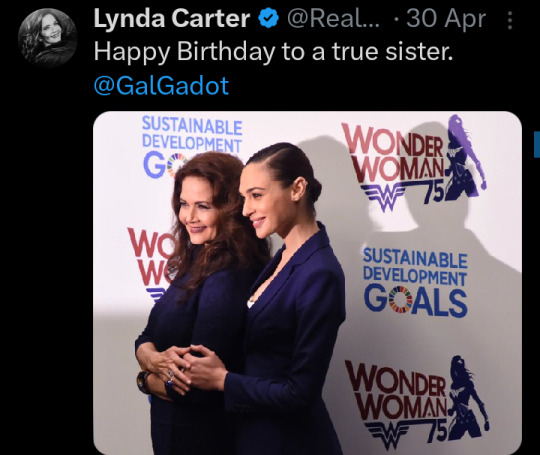#history>Inside
Explore tagged Tumblr posts
Text

What if I told you that RoobrickMarine went and wrote an entire novella starring my 16th century dog couple? It's very canon-adjacent, well researched and thoughtfully put together, has inspired me a ton during these past months and it's now publicly available at AO3. I highly recommend it.
✦ Separation ✦

#content warnings for sex violence self harm and general angst#six chapters 41K words#people who have asked for longer stories of these two please give this one a look#I've watched this unfold since late may? early july? and it's been an exciting experience#I'm not a writer I think it's better than what I could've come up with#honestly though the way he managed to get inside Machete's and Vasco's heads was uncanny their mannerisms and thought processes are spot on#some of the events aren't canon but they might as well be#and most of the background details and backstory tidbits are accurate believe me he's very well versed on their lore#big history nerd so the worldbuilding is intense#you get to meet the dog pope#there's saint sebastian#roommate hijinks#it gets kind of bleak at times though so be mindful of that#it's not all fluff and good feelings#Separation#Heinaven#RoobrickMarine#own characters#own art#artists on tumblr#CanisAlbus#Vasco#Machete#anthro#sighthound#dogs#canine#animals#if you end up reading the whole thing it would be really sweet if you left a little comment as a thanks for his hard work
7K notes
·
View notes
Text
my hot pjo take is that Jason isn't a second Percy, Jason is a second Annabeth. Jason is just if Annabeth was a guy and also a Big 3 kid.
#pjo#riordanverse#jason grace#annabeth chase#CAUSE LIKE. THINK ABOUT IT: older sister is Thalia. raised at camp from an unusually young age for demigods.#adoptive parent figure is the immortal teacher of said camp. looking to prove themself. extremely knowledgeable#becomes BFFs with the spunky new kid who's a little bit of an outcast and comes from a troubled home#ends up co-leading camp alongside them. likes architecture and history and very passionate about fairness and law and such#but also is kind of a notorious rulebreaker but never gets in trouble for it#literally ends up put in charge of building stuff for the gods!!!!!!#THEY EVEN LOOK ALIKE. blond/e hair tan skin and stormy eyes!!!!!#Thalia lost her brother and then found Annabeth and went ''oh look. Jason 2. yeah this will fill the void in my heart just fine''#anyways this does make Jercy VERY funny. Percy looking between Annabeth and Jason and going ''mhm. mhm. yeah.''#anyways if you are a jason lover but annabeth hater or vice versa. look inside yourself...... you may just find. two. of the same character
1K notes
·
View notes
Text
I know a lot of people would disagree and I understand the warning against it but traveling alone was honestly some of the most fun I've ever had 🥺 also like, the amount of nice interactions you get, both with other lone travellers or locals (especially older people who like chatting : D)
#Thinking about the lady who was resting on the statue of Mozart that's on the way to that mountain inside Salzburg#When I was climbing to look at him she misunderstood and made space for me to sit down#And then told me about about this place and how in most days you can hear birds every morning#Or the Scottish guy I met at the bus stop who's travelling only to see weird military history places#Idk it was fun
476 notes
·
View notes
Note
I just saw one of your fave games is What remains of Edith Finch and I’m so happy! I feel like its a lesser known game but i loved playing through it. I’m so happy to know more than just my small friend group know about this game!
Sorry this isn’t a question. Also want to say that you’re art is amazing and the development of the designs is so interesting to see. Also the way you draw intimate scenes have so much emotion to them. I love the Aj and rarity kissing comic so much, you can just feel their love for each other ;w;
Thank you so much!
I highly, highly, highly recommend What Remains of Edith Finch to anyone interested in narrative game experiences/"walking simulators." It's one of those games that was handcrafted with nothing but love. Every room you explore is just... real. The way the light flows in and makes the colors of the living room, the kitchen, the bedrooms glow. Playing the game is like walking through your childhood home as an adult and seeing how the dust clings to everything you once touched. Also genius-level gameplay mechanics, ones that can make you completely empathetic with the character you're embodying or feel completely complacent in their tragedy. It's really not fair to call it a walking simulator because it's so much more and so much smarter than that.Everyone talks about the fish one.
The theme of death and memory and storytelling and the burden of invisible trauma and self-fulfilling prophecies is so affecting too. The ending made me cry.
#detective-marshmallow#ask me#using this ask to seriously plug edith finch#and to talk about spoilers here#major major major spoilers#because i still think about walter. who saw something so awful and traumatic as a kid that he spend the next 40 years living right under hi#family. and everyone forgot about him#i think about the house. literally aching and creaking with the family's history of strange deaths#i think about sam. who had to grow up in an empty bedroom he once shared with his twin brother. and stare at the partitioned-off side#every single day#i think about edith. who knows she will have a child and knows she will die and continue the family curse but decides to live anyways#god edith didn't even make it to adulthood.#this game tears me up from the inside yet it's so full of love and fantasy and hope#it was honestly really helpful for my death anxiety.#don't fear death. one day you'll go. people will mourn. and then they'll tell stories about you.
547 notes
·
View notes
Text
Sam vimes is the only person to remember the 25th of may as it originally was his timeline
He’s the only one who remembers John keel - only one in ankh-moorpork at least for who he actually was
#ahoys thoughts#why is that sobering#history still caught up tho and it was Better#why does that make me feel sad or something to the left inside#edited post remembered why#lost and gained an egg on his grave#Sam vimes#discworld#gnu terry pratchett#terry pratchet
153 notes
·
View notes
Text

Picnicking ensemble, circa 1895
FIDM Museum Sporting Fashion Introduction
#this is what I look like on the inside#truly#I love EVERYTHING about this attire#the hat? gorgeous#the dress and the polka dots? wow wow wow#the picnic tin? pack two of them#victorian#victorian era#victorian fashion#19th century#fashion history#historical fashion
796 notes
·
View notes
Text



to everyone who said comfy or both.....you were right and I love you for it😘😘😘
#birthday girl#hi#me#my face#selfie#mirror selfie#cute girl#girls who lift#girls with tattoos#girls with glasses#pretty people#happy Wednesday#what a good day#penguin socks#wombats#this is for the aussies and the kiwis#time zone things#anyway#be my friend#message me#we can chat about world history or newtons law of cooling or whatever#let's go take some insulin#hot girl shit#model status#that's an inside joke about a career aptitude test not just vanity#i love yall#love me#should I do 4am gym time or 7pm#yes I do want to hurt#later taters
112 notes
·
View notes
Text

EPIC RAP BATTLES OF HISTORY
#talking heads#Devo#david byrne#mark mothersbaugh#devo band#devo fanart#talking heads fanart#EPIC RAP BATTLES OF HISTORY#ADHD#VS#AUTISM#BEGIN!#the fact they kinda had beef in the 80s was funny#the infamous mark mothersbaugh david byrne hate poetry#shitpost#I'll disappear from tumblr for 2 months and post this then proceed to disappear once again#These are the two wolves inside me#Mark is winning btw he has the power of adhd and autism on his side#Sorry
420 notes
·
View notes
Text
fainting goat hybrid!ghost whose father and brother loved to scare him and make him faint; exploiting a weakness he didn’t understand and didn’t know how to stop. they took sadistic pleasure in watching his body lock up and fall to the ground with no hope of catching himself until he ended up with more bruises and scrapes from falling than from being beaten
that helplessness chafed at him and he forced himself through the drawbacks of his biology to secure a place in the military, even with the prejudice against prey animals. just for him to take a mission in mexico and find himself enduring the “hospitality” of roba who thinks his involuntary paralysis is a great deal of fun; especially when he learns he’s conscious the whole time
what haunts ghost most is his waking autopsy
not the pain of the incisions, not the trauma of watching roba reach into his body and play with his insides, but the knowledge that he couldn't get away because his own body betrayed him. he wasn't put under, no drugs coursed through his system. he didn’t have restraints fitted on him to lock him to the operating table. it wasn’t necessary
roba just had to make him faint first
after digging himself out of his grave, ghost puts himself on a dangerous cocktail of muscle relaxers and other medications; hormones that block hybrid instincts, vasodilators to increase blood flow and stop his muscles locking up, anti-anxiety meds to cut off his surprise response at the root. he puts his body through the wringer to the point that medical is constantly worried for his health and shocked that he isn't regularly OD’ing
but he will never let his body betray him again
#what up i saw a video about fainting goats and was like ‘i can blorboify that’#ive never seen this specific hybrid type before and got so giddy with the idea that i might be presenting something new before the courts#the rest of his family werent hybrids but his father blamed his mother for letting him become one#saying she must have a recessive gene that ‘poisoned’ his offspring#(but hes the one that has an incomplete family medical history wink wink nudge nudge your fault cunt)#i go back and forth between soap being a predator hybrid but still submitting to ghost no matter how repressed he is#or another prey hybrid who is the furthest thing from ashamed about his instincts and needs#but either way he can smell the almost sickly scent coming off ghost in waves to the point that he cant help scratching at his nose#he hates it. hates the way it covers up his natural scent but he doesnt know what to do#hes always taken pride in his identity#but ghost? hes mutilitating himself from the inside and he doesnt know how to help him stop#coming out of my cage and ive been doing just fine.txt#we’re a team. ghost team#ghost cod#simon ghost riley#ghoap#ghostsoap#soapghost#hybrid au#cod fic#john soap mactavish#soap cod#save post
105 notes
·
View notes
Text
William Cooper 🤔
#pay attention#educate yourselves#educate yourself#knowledge is power#reeducate yourself#reeducate yourselves#think about it#think for yourselves#think for yourself#do your homework#do some research#do your own research#ask yourself questions#question everything#jfk#jfk assassination#inside job#cia#you decide#history lesson#american history#world history#hidden history#news#cover up
285 notes
·
View notes
Text
I was looking at my extended FAQ because I wanted to add a couple things to it, and decided to check up on a Twitter link I had on there and… uh…

👀
?????????
#………Christmas miracle?!?#or wait hang on#which one of you cyberbullied the man??#lmao no I’m only kidding but what happened?#that’s honestly a lot of cartoon tweet history just wiped away 😬#hack? intentional? did he hire someone to hack him?? inside job?????#it’s probably something boring like he’s moving to bluesky but that is so weird!!!!#in all seriousness I wanna know what happened!#in even more seriousness… I hope all is well? 😰
53 notes
·
View notes
Text



what,, is it a requirement to play a woman who would never support the ethnic cleansing and genocide in Palestine to be a genocide supporting heartless Zionist in real life?
#disappointment#dc comics#lynda carter#palestine#israel is a terrorist state#bonkers how diana has just never appeared in live action actually#wonder woman#and lynda has said jackshit about Palestine she's made her stance clear and its on the wrong side of history.#she's a bad person you cant just ignore the horror going on against Palestinians and be okay on the inside#and gal served in the idf enough said
150 notes
·
View notes
Note
(Sorry if i sound rude since english is not my first language 👉👈)
I love your writing so much btw thank you for providing us with top tier quality writing, the way you write rendacted is just 🤌😍
I dont know if its allowed since its kind of specific, but can i please request a fluff/comfort for an insecure chubby angel that's not confident with their body and strech mark so they kinda doubt that rendacted really love them and thought they only playing with them and only dating for fun or smth 👉👈 😳
Thank you soo much in advance (for the ping too) (≧∇≦)/
Thank you and you're welcome!! I love to cook this silly man 🥰 Appreciate da request <3
self loathing angst but it's just angel getting too deep in their own head
💜🖤💜🖤💜🖤
Shorts
After a few weeks of dating, somehow [REDACTED] still smiled at you the same way. Still had that look of wonder and joy whenever you spoke. Still let their hand linger in yours for a second too long each time you parted ways.
As happy as he made you, you couldn't trust them just yet.
Part of you was waiting—you'd been waiting the whole time—for everything to come crashing down. That’s how it always ended. You were surprised things even lasted this long.
He was sitting out in your shoddy living room while you changed for a date at the pier. As you looked in the mirror, your decision to wear shorts seemed like a mistake now. The horrid, uneven lines that patterned the skin of your thighs only made the choice worse.
Of all the places to choose to live, it just had to be near the beach. You barely got by with loose shirts and pants for a while, but each day was more hot and humid than the last this summer. You couldn't go out like this. Let alone have him see all those flaws that glared back at you from your reflection.
Your heart thudded in your ears as you contemplated changing into something else. But you could feel it. The moment you'd been dreading was going to happen no matter what. Sooner or later they'd break up with you. What was the point of waiting for it? You could get it over with now, while you were in the comfort of your own home.
A few minutes of familiar, agonizing, embarrassment, then straight to bed for a pity party and a movie once your soon-to-be-ex left. Nothing new.
There was nothing else to do but face it. You breathed in and out at a steady pace to calm your nerves, then crept into the hallway. Despite the care you took, a floorboard creaked before you rounded the corner into the living room.
“Ready to go?” In an instant [REDACTED] was calling your name, draining away the confidence you held. You couldn’t bear to look up as he approached—to see that soft smile you loved fall into a frown. His footsteps were quiet, and you soon felt the warmth of his presence in front of you. “What’s wrong?��
Their voice never wavered in disappointment like you expected. It made your heart skip a beat like always, calm and gentle as he was with you. He was even concerned, reaching for your hand at your side but stopping short when you managed a few words.
“It’s nothing,” you mumbled.
“Doesn't seem like nothin’, Angel. We don't need—” Whatever they were trying to say slipped right past you as fear set in.
Why was he treating you so nicely? Was the room too dim for them to see? Did he not see everything wrong about you on display? It didn’t even sound like they noticed the stretch marks. You weren’t sure what to do. Nothing was going the way it had with previous partners.
Arms cautiously wrapped around your now trembling form as he pulled you close. The sudden hug shocked you long enough to realize your cheeks were wet. And that he was rambling.
“—Upset you. If y’don't feel like goin’ anymore that's fine. We can stay here ‘til y’feel better. Or would you rather I leave? Get you somethin’? That store you like should still be open—” He took a step back.
You weren’t calm enough to speak, but desperately hugged your partner back when he tried to move away. They stopped immediately. A soft breath tickled your forehead, and the smallest sigh left him in relief.
“... Fuck. Had me worried there,” he whispered and tenderly kissed the crown of your head. “Should I stay then?” You nodded. Minutes passed in silence as he stroked scarred fingers through your hair to soothe you, occasionally murmuring quiet reassurance.
You couldn't see why he wasn't disappointed. His attempts to calm you weren't in vain, though.
Finally, you felt as if you could manage. “I thought that…” It was hard to say out loud when you clung so tightly that your face was pressed fully against his chest. You pulled back and sniffled. A small, damp spot on his black shirt got left behind as evidence of your tears. “Oops.”
The dark haired man let off a smile at your reaction and gently pried, “Thought what?”
You bit your lip. Lying wouldn't do you any good. “I’m not that nice to look at,” you eventually admitted.
He frowned to himself, then gently cupped your tear-stained cheek. “You’re absolutely beautiful, you know?”
“Oh… um.”
“Really. I promise I don't want anyone else." His blue eyes were dripping with clear adoration. "I’d stare at you all day if y’let me, love.”
The pet name had you at a loss, completely flustered. He never called you that before. “Can you really be sure?” Your voice got quieter and quieter as you tried to explain your worries further. “I just feel like…” With each word, your gaze drifted to the side in fear of his reaction. “You should've, uh… broken up with me by now?”
“Angel, I'd never even consider—” He cut himself off. "... ‘Been doin' a shit job of expressing m’self, if that’s what you’re thinking.” [REDACTED] hardly gave you a chance to react before he was leading you to the couch. He sat down, lacing his fingers through yours as he pulled you to sit in his lap. It felt more intimate than usual with his other hand resting on your bare leg. “I’ll get whatever you want at the pier tomorrow. Right now I need to make sure y’know how important you'll always be t’me.”
#14 days with you#14dwy redacted#14dwy#14dwy ren#momo reqs#yayyy#more angst (sort of)#angel with awful dating history aaaaaaa#i want him to beam positive thoughts into angel's mind#pls 🥺#he is so soft while freaking out on the inside#what goes on in that noggin...#reveal to me ur secrets#does this need cw tags#typos be gone
138 notes
·
View notes
Note
My headcanon for Modern!Machete before he encounters (re-encounters?) Vasco is that he works in some high-powered but low-profile position for an influential and well-known multinational. Like a corporate lawyer or accountant for Apple or Volkswagon or Shell. He's very, very good at his job, his assistants and staff think he's a good boss, his boss thinks he's great, but half his colleagues can't stand him because they think he got promoted for sucking up to their boss instead of for his skills (it was for his skills). He's got exactly enough interpersonal skills to recognize the problem and not enough to fix it. He gets paid extremely well, well enough to mostly pretend that he's happy and fulfilled (he still ends up happier in the Modern!AU because his job only sucks a little instead of literally destroying him. Also because modern medicine means his medical situation is much better understood and controlled). Yes this is all just the modern equivalent to what canon!Machete's got going on but it's startling how much carries over with no changes.
Oh that's so well thought out actually, I love that.
#man#not to get personal but that autism feeling when you're good at what you do but fail the face to face social affableness test#“enough interpersonal skills to recognize the problem and not enough to fix it” big mood#he thrives in professional settings because formality clear etiquette and solid social hierarchy are easier to navigate#than personal relationships which can be messy and vague and have unwritten rules and inside jokes that he's not privy to#“his job only sucks a little instead of literally destroying him” yeah that's what I've been thinking of as well#as much as I'd like to grant him his dream job in arts history fashion or such he really belongs in that cutthroat corporate hellscape#Vaschete scenarios#modern au#answered#anonymous
152 notes
·
View notes
Text




something’s wrong?
#heheh what a name for a town. borger. brother that is a samdwich!!#I could prob talk about what this means to me but I don’t wanna#actually nvm I just thought of a funny way to describe the feeling:#you have two wolves inside of you. one HATES everything it sees soooo much. the other only sees beauty. you’re jaded.#or something like that#I’m trying to be conscious about only bending man-made structures and objects#unless it just looks extra cool to bend the natural stuff too#not rly a critical commentary. the basic premise is to show you how fucked up these little towns are;#while also communicating how they’re typically found in naturally beautiful places.#weird right? like finding ruins. it’s like these places settled and then worldly-priorities changed and everything fell apart#but you can tell - usually - that somewhere in the history of these small towns someone said:#‘what a fucking sweet view. let’s make camp’#my art#glitch art#aesthetic#art#artwork#webcore#glitchcore#internetcore#abstract#artists on tumblr#photography#abstract art#distortioncore#glitch#weird art#americana#southern gothic#angels
500 notes
·
View notes
Text
Why Mr. Rochester and Bertha Mason Couldn't Get a Legal Separation; or, the Utter Madness of Marital Laws
So I saw a Jane Eyre post discussing why Mr. Rochester and Bertha Mason couldn't get a legal marital separation. I've thought a lot about this topic, and in order to procrastinate writing the final for my upper-level Brontë class, I've decided to write this sort of convoluted analysis instead. I know many others have written about this subject, but I wanted to explore a bit further on my own.
Preliminary context about me, the Brontës, their Byronic inspiration, etc.: I've learned a lot about 19th century British marriage laws recently in my classes on old British literature, as well as by having studied Byron, whose marital separation in 1816 was a notorious part of his history & also reverberated through 19c literature. He refers to this separation in many of his works, most famously in his notorious poem "Fare Thee Well." Harriet Beecher Stowe, the most famous American female writer at the time, was friends with Lady Byron and wrote a book defending her called "Lady Byron Vindicated: A history of the Byron controversy from its beginning in 1816 to the present time" (the original callout post).
Insanity accusations did factor in to Byron's separation. Many scholars have remarked how the Queens of Byronic Criticism, the Brontë sisters, took significant inspiration from their well-worn copy of Moore's biography Life of Byron when creating their works. The Brontës would have been very familiar with marriage laws not only due to their knowledge of Byron's trainwreck of a marriage, but also due to being well-educated women at the time who knew that marriage was the most important economic decision of one's life and could very well make or break a person. As a result, marriage plays a significant role in their novels.
More relevant preliminary context about the novel: Jane Eyre actually takes place in the Georgian era, despite most adaptations and anaysis presenting is as a Victorian piece due to the novels publication date (this drives me crazy; same goes for the other Brontë books). Marriage laws did not change drastically from the time the novel is set to the time Brontë was writing the novel, but things were a bit different socially. Rochester was also married 15 years before his attempt to marry Jane. According to this very good analysis, Rochester and Bertha probably married in or around the year 1793: https://jane-eyre.guidesite.co.uk/timeline.
Now, here are the reasons why Rochester couldn't separate from Bertha:
1) Insanity wasn't grounds for divorce/separation in the Regency era.
Rochester himself says that he couldn't legally separate from her because of her insanity, which presumably rendered any of her faults null on the grounds of that marital vow "in sickness and in health." This is possibly one of his biggest reasons:
"I was rich enough now – yet poor to hideous indigence: a nature the most gross, impure, depraved I ever saw, was associated with mine, and called by the law and by society a part of me. And I could not rid myself of it by any legal procedings: for the doctors now discovered that my wife was mad — her excesses had prematurely developed the germs of insanity [..]"
2) Divorce was nearly impossible anyway.
There had only been around 300 divorces in English history at the time. Almost all of them were husbands divorcing their wives for committing adultery. Only a handful of divorces had succesfully been obtained by women, and they were only in cases where the husband had committed incestuous adultery or bigamy, and was extremely physically cruel. So technically after his bigamy attempt, Bertha may have had more grounds to obtain a divorce than Rochester would have, if only she were lucid enough to do so. However, in that scenario infertility would have helped their case, and Adèle's existence would have harmed their case if he attempted to seek a divorce before marrying Jane. Though as the novel explains, Adèle is probably not his, she definitely would have been used against him, as would the fact that he kept Bertha's existence a secret in England. But he wouldn't have tried for divorce that late in the game anyway, considering it was one of the most difficult options.
3) Female adultery was your best bet at divorce or separation, and this probably wasn't applicable to Mr. & Mrs. Rochester.
Although some scholars claim that there is subtext hinting that Bertha was adulterous (which some adaptations, like the 2006, include), you needed substantial proof of the adultery, which Rochester may not have had if it did occur. Being a proud man, he also wouldn't have wanted to be humiliated in that way by letting it be publicly known (as shame is one of his main reasons for hiding their marriage to begin with).
However, I lean toward the idea that Bertha may not have committed adultery. If she definitively did, seeing how affected Rochester was by Céline cheating on him (he shot her lover in revenge and left her with a stipend), if he ever suspected adultery on Bertha's part then I'm sure he would have been at court the very next day. I also think Rochester tries not to be too much of a hypocrite, and he is well aware that he himself is an adulterer, so he probably doesn't want to accuse Bertha of a crime he's committed and which he couldn't definitively prove she did.
Rochester does talk about hating Bertha's "vices" when they lived together, citing drinking, arguing, cruelty to servants, cursing, her being "unchaste," a "harlot," etc. - the last epithets, combined with her supposed lack of morality, and her being described as seductive, heavily imply that adultery could be added to her list of offenses. However, if she did truly cheat on him as well, I don't see why he wouldn't plainly tell this to Jane as well. I would imagine it would be his first complaint, and it would probably be considered his most justifiable reason against her by their cultural standards.
I don't see why he wouldn't jump to take Bertha's infidelity as an opportunity to defend his own actions, considering how open he is with Jane about his own adultery and being cheated on by Cèline Varens. While I can see how some of the textual evidence may strongly suggest Bertha's adultery, we cannot be fully certain, and that may be because Rochester himself is not fully certain. I cannot see why he wouldn't have sought legal advice on that account alone.
In short, if Bertha was an adulterer, there must have been no evidence to convict her.
Also: while the double-standard may seem odd and trivial to us, the reason why female adultery held more weight than male adultery has entirely to due with old patriarchal inheritance laws; i.e the risk of a wife getting extramaritally pregnant and passing the illegitimate child off as her husband's heir was considered too great of an affront. A man could have as many bastards as he wanted because he would know they were bastards and were not at risk of inheriting his stuff. One needed legitimate heirs to justify passing on one's ancestral wealth to. Essentially, marriage was a mere economic tool, and the economy was and is inherently patriarchal. I digress.
4) Rochester's lack of social & economic leverage, and risk of social ruin in general.
Only the wealthiest of the wealthy could obtain divorce or official separation, and it often led to social ruin. Rochester is rich, but he has no title and no great network of supporters due to being a younger son and having been abroad for most of the past 15 years (this was the length of his marriage to Bertha, stated by Mr. Briggs during the bigamous wedding attempt). He doesn't have as much leverage as Lord and Lady Byron had.
To continue on official separation, like Lady and Lord Byron obtained. Just like divorce, this was also a messy and scandalous legal proceeding, and required numerous good reasons to obtain, and being well-connected Lords and Ladies really helped your case. You also needed many witnesses and written statements as evidence. Bertha's family, as we see with Mason, would have been unhelpful to Rochester, and due to his shame and secrecy, no one could really testify on his behalf I'm assuming.
5) Unofficial separation would have been inconvenient, especially in regards to living situations.
Aside from divorce, which was extremely rare, extremely controversial, and only for the wealthiest members of society — there were unofficial and official separations. An unofficial separation was simply living apart from one another. I've often wondered why Rochester didn't simply move Grace Poole and Bertha somewhere else, but my main theory is that it would have been cost ineffective, and due to his family who were implied to be shitty, he probably really didn't want to live at Thornfield anyway so thought it would be convenient to place her there. Rochester says it would be dangerous to place her in his other residence of Ferndean:
"[..] though I possess an old house, Ferndean Manor, even more retired and hidden than this, where I could have lodged her safely enough, had not a scruple about the unhealthiness of the situation, in the heart of a wood, made my conscience recoil from the arrangement. Probably those damp walls would soon have eased me of her charge: but to each villain his own vice; and mine is not a tendency to indirect assassination, even of what I most hate."
6) Annulment was likely impossible given their circumstances.
Annulment means evaporating the marriage, acting as if it never existed, that it was a mistake. This was rare and only granted in unique circumstances, and I believe it was more common with aristocracy and royals. I believe you could possibly get an annulment if you could prove that the spouse was insane at the time of the wedding and you did not know. However, Bertha did not begin to truly deteriorate until after they had been living together for a bit. And while Rochester says that he did not know her mother was in an asylum until after the wedding, having an insane mother doesn't mean that you are insane, which Bertha clearly wasn't at that point, at least not in a way that people would have publicly acknowledged, since Rochester says she attended parties and her hand was highly sought after.
Generally, the longer a marriage had gone on, the harder it was to prove why it could not go on. Rochester says that he and Bertha "lived together" for "four years" in Jamaica while her condition deteriorated and he tried to make things work. And again, after the wedding he found out her mother was "mad, and shut up in a lunatic asylum." So we have more reasons for Rochester's difficulty: the fear of Bertha going to an asylum while she was still mostly lucid in those first four years, combined with the fact that they openly lived together and certainly must have consummated their marriage (things which would further prevent annulment), and were certainly publicly recognized as a couple in Spanish Town society, and her family wanting the marriage to continue so she could have children of "good race" i.e. to produce heirs.
Here's an important passage that to me suggests that Rochester and Bertha not only had an initial flirtation but likely consummated their marriage, likely had a passionate sexual relationship for some time, and likely implies his feelings for her were more complex than we'd initially assume, making annulment not so clear-cut of an option to him at the time:
"My father said nothing about her money; but he told me Miss Mason was the boast of Spanish Town for her beauty: and this was no lie. I found her a fine woman, in the style of Blanche Ingram; tall, dark, and majestic. Her family wished to secure me because I was of a good race; and so did she. They showed her to me in parties, splendidly dressed. I seldom saw her alone, and had very little private conversation with her. She flattered me, and lavishly displayed for my pleasure her charms and accomplishments. All the men in her circle seemed to admire her and envy me. I was dazzled, stimulated: my senses were excited; and being ignorant, raw, and inexperienced, I thought I loved her. There is no folly so besotted that the idiotic rivalries of society, the prurience, the rashness, the blindness of youth, will not hurry a man to its commission. Her relatives encouraged me; competitors piqued me; she allured me: a marriage was achieved almost before I knew where I was. Oh, I have no respect for myself when I think of that act! — an agony of inward contempt masters me. I never loved, I never esteemed, I did not even know her."
7) Spousal abandonment wasn't possible, and on some level he honored his legal and financial obligations to her and the Mason family.
Bertha's family likely refused to house her for legal and personal reasons, and spousal abandonment was forbidden due to the husband's financial responsibility as well as the law of coverture (a wife became her husband's full legal responsibility; some say "property"). Like we see in Anne's Tenant of Wildfell Hall, if a woman ran away from their spouse they would have to live in obscurity and be at risk of being sussed out. You couldn't just abandon your partner. Still, people did, because it was the easiest route to take.
But the more upper-class you were, and the more financial entanglements you had, the more inconvenient this was. We know that Rochester and his family became enmeshed with the Mason family, and he got a lot of money from Bertha, so her father likely would have taken him to court. At any rate, Rochester was legally bound to bring Bertha with him to England when he left Jamaica. If he attempted to abandon her in Jamaica, the backlash it would have brought would have brought him social ruin and foiled his chances at getting away with any bigamy attempts.
All this brings us to a further notice of Bertha's family situation. Based on Charlotte Brontë's positive comments about Rochester's character (https://www.tumblr.com/burningvelvet/731403104856195072/in-a-letter-to-w-s-williams-14-august-1848) I see no reason to suspect him, like many feminist critics do, of being an unreliable narrator or of lying about Bertha Mason's history. Everyone is entitled to their opinions, and in mine, that is simply not the novel Charlotte wrote. By her own admission, she wanted his narrative to be a path to further goodness.
It makes no narrative sense for our explanation of his and Bertha's history to be full of lies when he's trying to make ammends with Jane, who never suspects him of lying during his admission, but who does critique him and figure he'd tire of her like she was one of his many mistresses. Jane wonders if Rochester would lock her in an attic too, which he refutes on the basis that he loves her more than he loved Bertha when she was sane, and so he would care for Jane himself. Jane also tells him that it's not Bertha's fault that she's mad. So in my opinion, if Charlotte wanted us to believe Rochester was lying about his and Bertha's history to make himself look better or Bertha look worse, I don't see why she would have been vague about it, and I don't see why Jane wouldn't have called it out like she does everything else. I don't think Rochester is really a villain who locked his harmless wife in the attic for giggles; I think he weighed most of his options and found, like most people back then and even today, that keeping his problems locked up and ignored was the best solution.
Now, on with the point. I have often wondered why Rochester didn't simply "unofficially separate" from Bertha by leaving her with her family when he left. Why did he take her to England? Why didn't he just run away? It wasn't because he was an evil villain who wanted to keep her as a trophy. It's because 1) I don't think her father would have let him, as he was so quick to marry her off, 2) he felt obligated to her, and 3) it was criminal for men to abandon their wives, and it would have attracted publicity, which is what Rochester was avoiding by taking Bertha to England and sheltering her in secrecy.
Many claim that Rochester's adultery is a betrayal of his wife; and while religiously, narratively, socially, we can accept this statement, it was not legally a crime. While Rochester does honor his financial and legal obligations to his wife and her family, he does not take the religious part of the vows into account, and that's why he's cosmically punished and only rewarded after he repents, as he explains toward the end of the novel.
Another interesting point is that when Rochester recounts his decision to move back to England, he tells us that Bertha had already been declared insane in Jamaica and that she was already confined there (presumably around the 4 year anniversary before they left), meaning her father probably knew about confinement:
"One night I had been awakened by her yells (since the medical men had pronounced her mad, she had of course been shut up) — it was a fiery West Indian night; [..]"
Locking away "insane" people was standard procedure then, and if this was done with Bertha's father's knowledge, considering he locked his own wife away in an asylum, then this further absolves Rochester of a lot of the blame in my opinion. It more than likely wasn't his idea to lock her away, but the advice of "the medical men" and presumably her father's consultation as well.
8) Even if he divorced or separated from her, he couldn't remarry. Attempting these, or getting caught attempting abandonment, would have brought negative publicity that would have likely prevented the success of any future bigamy attempts. To him, secrecy and bigamy seemed better chances at securing happiness than the social ruin and likely failure the other options would have brought him.
Aside from Rochester's own explanation (which I supplied in #2 re: the separation veto inherent to Bertha's insanity), the other biggest reason as to why Rochester wouldn't seek a separation/divorce even if she hadn't been declared insane and even if he were willing to accuse her of adultery truthfully or not, is due to the fact that one could not legally remarry upon separation or divorce (unless you were Henry VIII and got God's permission lol). Rochester's impossible dream is that he wants to be married to someone he really loves, and if secrecy and bigamy are his only options then he is willing to succumb; this is shown in numerous passages:
"[..] I could reform — I have strength yet for that — if— but where is the use of thinking of it, hampered, burdened, cursed as I am? Besides, since happiness is irrevocably denied me, I have a right to get pleasure out of life: and I will get it, cost what it may."
"I will keep my word: I will break obstacles to happiness, to goodness — yes, goodness; I wish to be a better man than I have been; than I am — as Job's leviathan broke the spear, the dart, and the habergeon, hinderances which others count as iron and brass, I will esteem but straw and rotten wood."
"Is there not love in my heart, and constancy in my resolves? It will expiate at God's tribunal. I know my Maker sanctions what I do. For the world's judgment — I wash my hands thereof. For man's opinion — I defy it."
Closing remarks on the above's validity: I can't cite all my sources because a lot of this stuff I learned from lectures via my professor who specializes in 19th century English literature & history. But here's some recently published information from a historian, taken from "Inside the World of Bridgerton: True Stories of Regency High Society" by Catherine Curzon (2023):
"And if you were one of the newly-weds, you really did hope things would work out, because in the Regency till death do us part wasn't just an expression. As the Prince Regent himself had learned when he separated from his wife within eighteen months of their marriage, obtaining a divorce in Regency England was no easy matter. He never achieved it, and for those who did the stakes could be high and the cost ruinous in every sense."
"Until the passing of the Matrimonial Causes Act of 1857, which legalized divorce in the civil courts, it was governed by the ecclesiastical courts, and the Church didn't end a marriage without very, very good reason. Even these divorces didn't allow a couple to remarry, though, and they were more akin to what we would today call a legal separation, with no shared legal or financial responsibilities going forward. It was freedom, but only to a point."
"The only way to obtain a complete dissolution that allowed for remarriage was to secure a parliamentary divorce, and these were notoriously difficult to obtain. They began with a criminal conversation case, because they relied on adultery by one of the parties to make them even a slight possibility. If a woman committed crim. con., her life in polite society was over."
#jane eyre#lord byron#charlotte brontë#charlotte bronte#byronicism#marriage#divorce#marriage laws#english history#english legal history#mr. rochester#bertha mason#mr rochester#analysis#literature#english literature#history#Inside the World of Bridgerton: True Stories of Regency High Society#regency era#georgian era#19th century#1800s#victorian#Catherine Curzon#interesting#essays#the bronte sisters#the brontes
345 notes
·
View notes